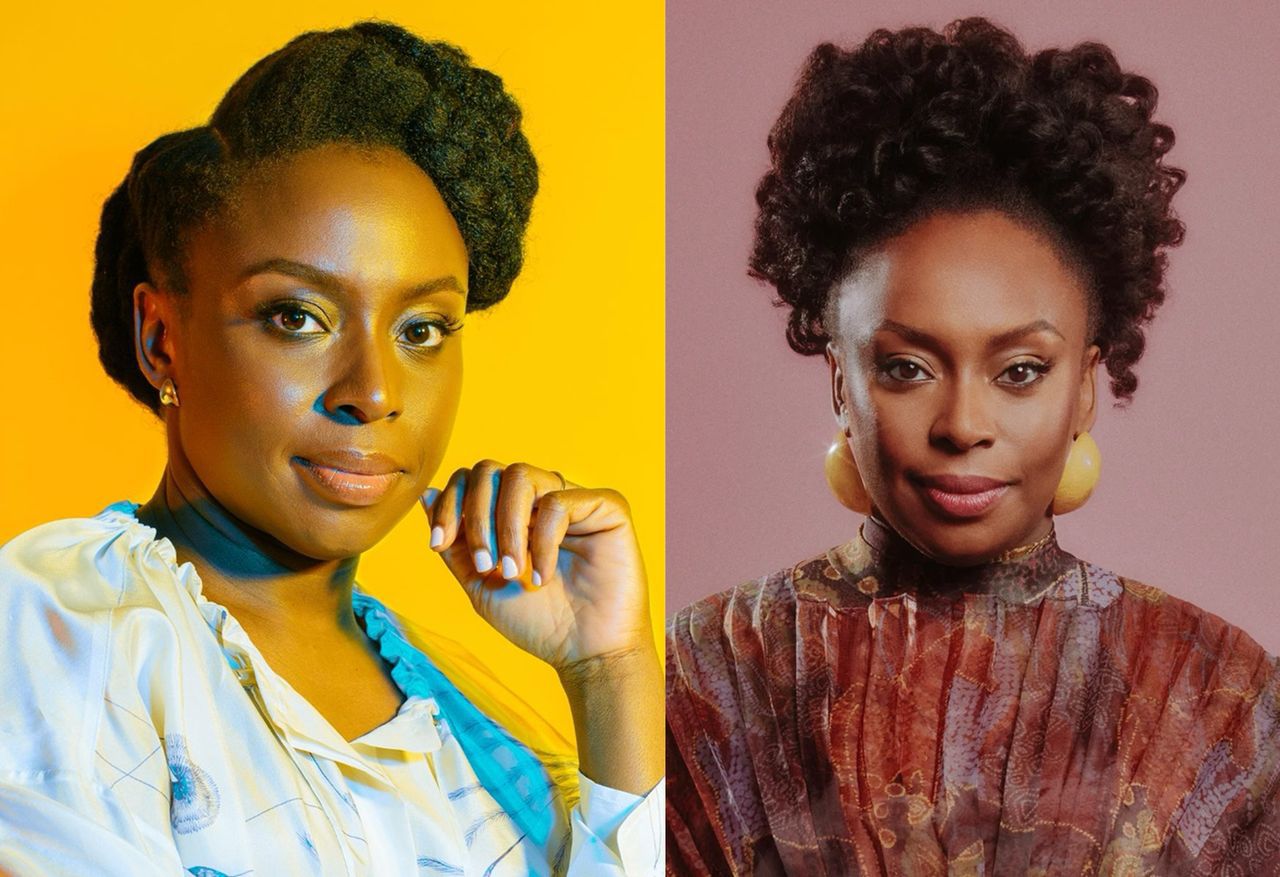
Teach Them Their Roots Before the World: Chimamanda Adichie Warns Parents Against Prioritizing Foreign Languages Over Mother Tongue

Renowned Nigerian author and global literary icon Chimamanda Ngozi Adichie has stirred up fresh conversation on the cultural priorities of African parents after making a strong appeal for the preservation of indigenous languages. During a recent public engagement, Adichie passionately urged parents to teach their children their native tongues before introducing them to foreign languages such as French, English, or German, emphasizing that identity, pride, and confidence are all deeply rooted in the language a child grows up hearing and speaking.
In her words, “Please stop that French lesson and start teaching them their language because that's what will give them confidence.” The statement, though short, reverberated through social media platforms, schools, parenting forums, and cultural institutions, reawakening a discourse that many argue has been neglected in the pursuit of global relevance.
Adichie, best known for her books Half of a Yellow Sun, Purple Hibiscus, and Americanah, is not only celebrated for her literary genius but also for her unflinching commitment to African identity and pride. For years, she has spoken boldly about colonial legacies, Western influence, and the urgent need for Africans—especially the youth—to remain grounded in their heritage even as they engage with the global world. This latest comment adds to a growing body of cultural advocacy, and its timing couldn’t be more urgent.
Across Nigeria and much of Africa, a growing number of middle- and upper-class families are enrolling their children in international schools, hiring foreign language tutors, and celebrating linguistic milestones in French or Mandarin—all while their children struggle to form complete sentences in Igbo, Yoruba, Hausa, Efik, Tiv, or Edo. In many households, parents speak English exclusively at home, proudly telling others their children can’t speak the local dialect—often as a sign of progress. But to Adichie, this is not a mark of advancement; it's a crisis.
Social media lit up with reactions following the author’s remarks. Some users applauded her bravery, calling her a “true daughter of the soil,” while others reflected on their own experiences of linguistic detachment. “My son speaks fluent French, but he can’t even greet his grandmother in Yoruba,” one mother confessed in a trending tweet. “Thank you Chimamanda for reminding us what truly matters.”
Others were less receptive. Some critics accused Adichie of being idealistic, arguing that in a globalized economy, languages like English, French, and Mandarin offer more career opportunities. One Twitter user wrote, “Confidence doesn’t pay bills. Fluency in French got me a job at the UN. Sorry, but my child will keep learning French.” Still, the pushback did little to water down the impact of her message.
Experts have long warned of the dangers of language extinction, and Nigeria, despite its incredible linguistic diversity, is not exempt. According to UNESCO, several Nigerian languages are endangered, and some have already vanished. Language is more than just a tool for communication; it is a vessel for history, customs, music, storytelling, jokes, values, and ways of thinking that are unique to a people. When a language dies, a worldview dies with it.
Adichie’s argument goes beyond cultural nostalgia. It’s also about psychological grounding. Numerous studies suggest that children who grow up with a strong connection to their heritage, including their native language, tend to have higher self-esteem, stronger family bonds, and a more resilient identity. Speaking one's native language doesn’t conflict with speaking other global languages—it enhances a child's ability to code-switch, embrace multiple cultures, and navigate the world with a sense of origin.
Ironically, many of the very countries whose languages Nigerians so enthusiastically adopt are investing heavily in preserving their own cultures. France, for instance, protects the French language through strict media regulations and laws that limit the dominance of English in public communications. China teaches Mandarin with national pride and imposes penalties for failing to uphold linguistic standards in schools. Yet in Nigeria, the opposite appears to be the trend, with some schools outright banning the use of local languages, even during breaks, in favor of promoting English excellence.
The consequence is a generation of African children who can recite Shakespeare but have never heard their grandparents tell a folktale in their mother tongue. A generation that can sing “Frère Jacques” but doesn’t know the proverbs of their ancestors. A generation that can pronounce “Croissant” perfectly but stumbles over the name of their hometown.
Adichie’s call is not a rejection of multilingualism or education. Instead, it is a plea for balance. “Start with your own,” she seems to say. “Root your child before you stretch their branches to the world.” She is not asking parents to ban foreign languages but to recognize that the foundation of a child’s confidence is tied to their sense of identity. And that identity is incomplete without language.
Following the viral circulation of her comment, many educators and linguists began echoing her sentiments. In Lagos, a school announced plans to add Yoruba and Igbo lessons as part of their early education curriculum. In Enugu, a radio host invited callers to discuss the challenges and joys of teaching children their native tongue. In Abuja, a parent-teacher group shared resources and tips on how to make learning local languages fun and accessible at home.
It is still early to measure whether Adichie’s words will lead to long-term behavioral change, but one thing is clear: she has sparked a necessary conversation. In a time when digital culture often favors Western expressions and global sameness, her voice stands as a reminder that before we teach our children to be citizens of the world, we must first teach them to be children of their land.
The urgency of her appeal is matched only by the simplicity of her solution: speak to your children in your language. Tell them stories in your language. Sing to them in your language. Let them hear the sounds of their ancestors before they hear the sounds of the world.
In an era where identity can be fragile and fleeting, Chimamanda Adichie’s words echo like a lighthouse to drifting ships. She reminds us that before the child learns to say “Bonjour,” let them first learn how to say “Ndewo,” “Bawo ni,” or “Sannu.” Because confidence doesn’t begin in a French class—it begins at home.


